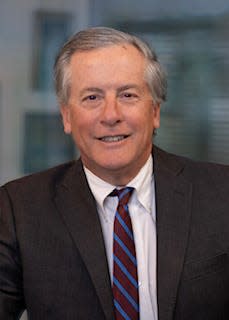OPINION: Trump rocks down to Electric Avenue and into copyright infringement

A New York based federal district court recently ruled that Donald Trump and the Trump campaign infringed the copyright on the Eddy Grant song "Electric Avenue." Trump argued that he was protected by the fair use defense, but the court wasn’t buying it.
Eddy Grant wrote, recorded and produced the 3 minute and 48 second song entitled Electric Avenue (You know it, go ahead and sing along.) He and companies he controls own the copyright.
On August 12, 2020, Daniel Scavino, Director of Social Media and Deputy Chief of Staff for Communications of the Executive Office of the President, published a tweet to former President Trump’s Twitter account containing a 55 second video in which "Electric Avenue" can be heard starting at the 15-second mark and continuing for the duration of the video. Scavino testified that he saw the video on a Trump supporter’s social media page either on the same day or the day before he posted the Tweet. Scavino also testified that he spoke with former President Trump before posting the tweet and that former President Trump "let [him] go with [his] instinct on it and post it." Former President Trump testified that the video was taken from the internet and posted on Twitter.
The video was a campaign video attempting to denigrate the Democratic Party’s 2020 nominee, current President Joseph Biden. The video contains an animation of a high-speed red train bearing the words, "Trump Pence [Keep America Great] 2020," in stark contrast to a slow-moving handcar bearing the words, "Biden President: Your Hair Smells Terrific."
The handcar is powered by an animated likeness of President Biden, and excerpts of President Biden’s speeches and interviews are played over the recording. By letter dated August 13, 2020, Grant demanded that Trump and his campaign cease and desist from any further allegedly infringing conduct. As of September 1, 2020, neither the video nor the tweet containing the video had been removed from Twitter. On September 1, 2020, Grant filed a complaint in federal court.
Trump’s only defense to the copyright claim was that his tweet was a "fair use." Grant filed a motion for summary judgment, arguing that the defense lacked legal merit. The court applied a four-factor test and ultimately agreed with Grant.
The court first found that Trump’s use did not "transform" Grant’s original work. In its words, "the video is best described as a wholesale copying of music to accompany a political campaign ad," . . . "[T]he video’s creator did not edit the song’s lyrics, vocals or instrumentals at all."
The court next found that Trump conceded that Electric Avenue was a creative, published work, a factor that favored Grant.
On the third factor, the court considered "the amount and substantiality of the portion used in relation to the copyrighted work as a whole." Once again, this factor favored Grant. As the court found, "[t]he song plays for the majority of the animation; the excerpt is of central importance to the original work; and the defendants have not articulated any purpose for the copying."
Finally, the court considered the effect the copying would likely have on the market for the song. Here the court considered the bigger picture, noting, "[I]t is plain that widespread, uncompensated use of Grant’s music in promotional videos — political or otherwise — would embolden would be infringers and undermine Grant’s ability to obtain compensation in exchange for licensing his music." Artists make money by licensing their works. If those works could be freely copied, that revenue stream would dry up. The court essentially found that Trump was not entitled to use Grant’s work without compensating him.
The court did not decide at this point the damages to which Grant will be entitled. That will be determined in a later proceeding. Maybe at that point, Trump should see about getting license to use the song, "I Fought the Law and the Law Won."
Jack Greiner is a partner at Faruki PLL law firm in Cincinnati. He represents Enquirer Media in First Amendment and media issues.
This article originally appeared on Cincinnati Enquirer: OPINION: Trump rocks down to Electric Avenue, into copyright infringement